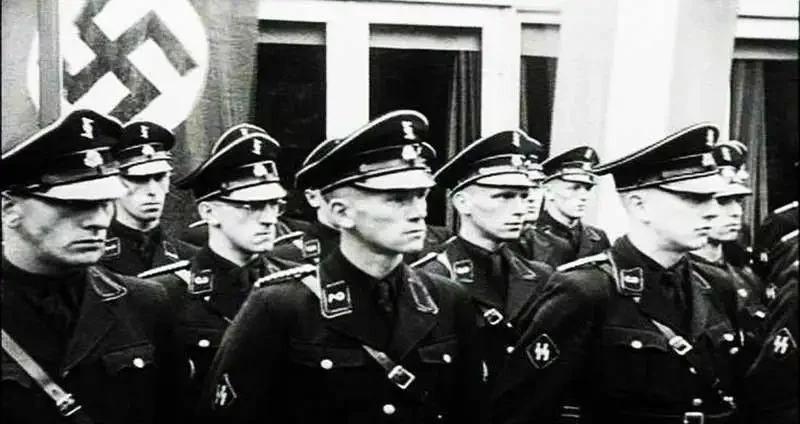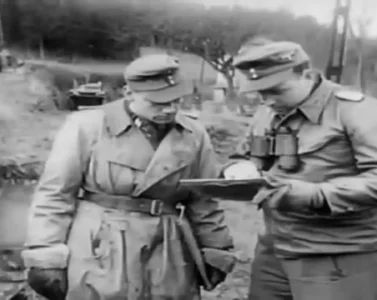- Military History
- Units & Divisions
- German Units
- Gestapo - Germany's Secret State Police (1933)

Gestapo - Germany's Secret State Police (1933) The Gestapo was the Nazi-instituted German secret police organization
The Gestapo was the Nazi-instituted German secret police organization which, together with the SA (Sturmabteilung) and the SS (Schutzstaffel) formed the basic apparatus of repression in the Third Reich. Unlike the SA and the SS, the Gestapo was not created until the Nazis had come to power. Originally operating in the state of Prussia, it received its notorious name in April 1933 after Hermann Göring (as minister of the interior of Prussia) had purged the state police, putting Nazi supporters in all key posts, and had also taken over the Berlin Police Bureau (the existing state political police).
On the 26th of April 1933, the Gestapo headquarters was established at number 8 Prinz-Albrechtstrasse in Berlin. The building soon became notorious as the Gestapo's chief interrogation center and prison. Similar political police forces were set up in other German states by Heinrich Himmler during the period from April 1933 to April 1934 (first in Bavaria) where Himmler had been appointed president of police and later in Hamburg, Mecklenburg, Lübeck, Württemberg, Baden, Hessen, Thuringia and Anhalt.
This extension of Himmler's powers was in response to Hitler’s demand for centralization of functions in place of the old state autonomy. In 1934, Göring's ambitions extended into wider fields and he handed over his Prussian Gestapo to Himmler on the 20th of April, along with the state Concentration Camps he had established. The camps were placed in the hands of the SS, which Himmler also controlled. Himmler moved his headquarters from Munich to Berlin, taking full control of the uniformed national SS movement and the national Gestapo forces.
From now on the SS, the SD (Sicherheitsdienst) and the Gestapo were to march in close step together and were often indistinguishable except from the inside, where differentiation was jealously maintained. Together, they made up the police state. After the purge of Ernst Röhm on the 30th of June 1934 during the “Night of the long knives” the power of the SA weakened sharply, and the SS took priority as the national force sustaining the Nazi regime. The Gestapo received official recognition as an independent national police force in February 1936, when it was placed in the charge of Heinrich Müller (a career police officer) an efficient and rather mild-mannered man who disappeared completely after the war.
In 1939, the Gestapo became a division of the Reichssicherheitshauptamt (RSHA - the Reich Main Security Office) under Himmler’s subordinate, Reinhard Heydrich. In effect, it became merged with the SS while retaining its individual identity.
The Gestapo extended its control to the occupied countries. Its agents frequently operated in plain-clothes, arresting men and women without warning or spying on their movements until they judged the right moment to seize them. The notorious “Nacht und Nebel Erlass” from December 1941 directed primarily against occupied countries in the west, enabled the Gestapo to arrest individuals and make them "disappear" and wiping out all record of them so that relatives who sought to know their fate would be told there was no record of their existence inside or outside Germany.
The confinement of persons without trial in prison or concentration camp had become normal practice and was intensified in war conditions. Interrogation under torture was also normal practice. Prisoners were stripped, humiliated and subjected to the cruelest forms of torture, some of medieval origin (thumbscrew and rack), some more modern (electric shocks applied to the most sensitive parts of the body). A prominent member of the German Resistance, Dr. Fabian von Schlabrendorff (who survived the regime) has described in his book “The Secret War Against Hitler” how he was tortured in order to persuade him to reveal the names of his fellow conspirators and how the torture stopped immediately when he broke his silence and gave information (which was in effect quite harmless to anyone still alive).
Jacques Delarue, in his book Gestapo, describes the operation of the secret political police in France. With the headquarters established in Paris, there were Gestapo branches in 17 regional centers, including Bordeaux, Nancy, Rouen, Lyons, Marseilles, Montpellier and Vichy. The Gestapo used agents and collaborators to spy and gather information, especially against resistance workers.
In the Nuremberg Trials, the Gestapo was indicted as a criminal organization, and its close interrelations with the SD and the Criminal Police revealed. The Gestapo was shown to have been involved in every aspect of terrorization practiced by the Nazis like the persecution and extermination of the Jews, brutalities and murder in the concentration camps, excesses in the administration of occupied territories, the operation of the slave labor programs and the maltreatment of prisoners of war. Consequently, its agents were collectively condemned as war criminals.
- Germany - Weimar Republic (1919-33)
- Germany Nazi (1933-1945)
- Weimar Republic (1918-1933)
- WWII (1939-1945)
- {{#owner}}
- {{#url}} {{#avatarSrc}}
{{name}} {{/url}} {{^url}} {{#avatar}} {{& avatar}} {{/avatar}} {{name}} {{/url}} - {{/owner}} {{#created}}
- {{created}} {{/created}}























